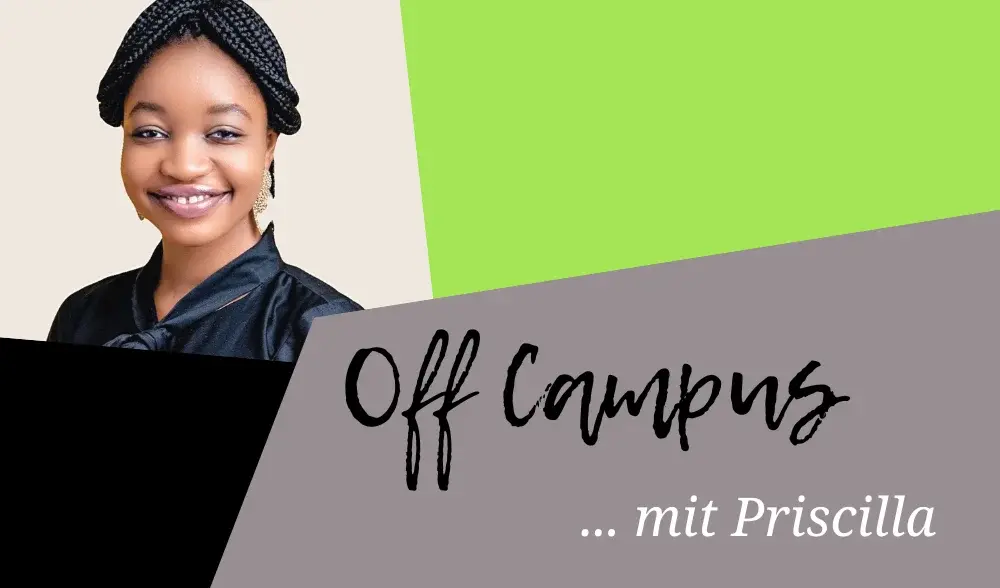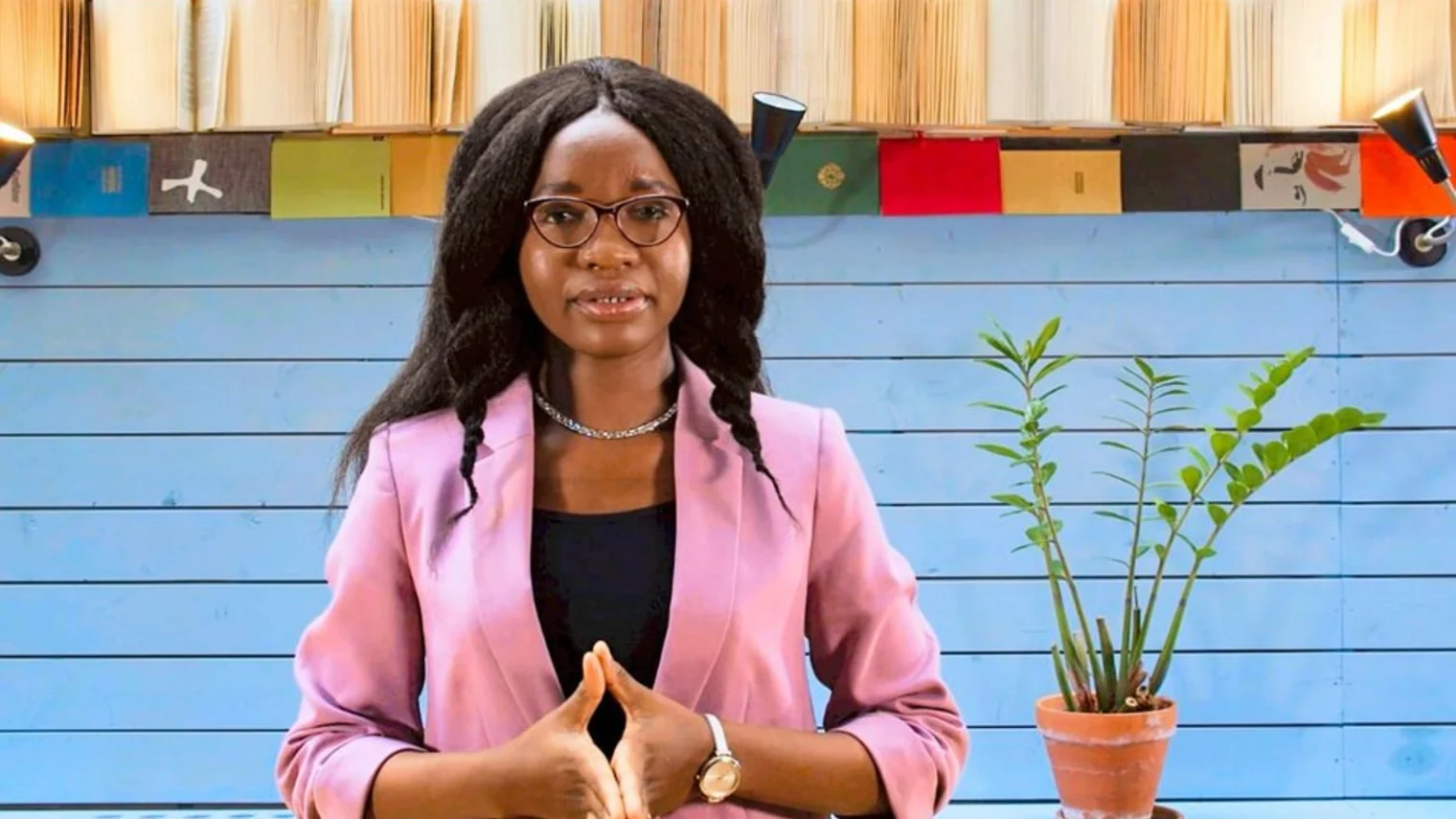With EdTech against unequal education provision

"I was lucky to always have the right people around me at the right time," says Priscilla Boatemaa Appiah full of gratitude. "People who supported me at important stages of my life, motivated me or showed me opportunities to be able to realise my dreams." One of these dreams is to break the stigma and systemic exclusion of children with learning disabilities in Ghana. To this end, the student of the Willy Brandt School of Public Policy at the University of Erfurt has founded the EdTech for Special Learning Needs project, for which she has already received the Commitment Award from the Brandt School and the Engagement Award Foundation as well as the Social Impact Award Germany. For our campus life blog "Ich mag meine Uni" (I like my university), we spoke with the young entrepreneur about her studies and the project.
The motivation and the need to want to participate in socially relevant problem solving and decision-making already came to Priscilla Appiah during her first studies in Ghana. There, she first studied social work and economics before dedicating herself to policy analysis in a postgraduate course. One topic that always accompanied her was social justice and the question of how education can contribute to making society more just. This question became all the more urgent for her as she gained practical experience in various non-profit organisations in the field of education and thus became even more aware of educational inequality in Africa. "I realised how close I am to the fate of the weak, marginalised and voiceless and how much this is shaped, among other things, by the unequal provision of education in Africa. This awareness became my drive to find answers to my questions as well as solutions to the existing problems," Priscilla recalls. "Systemic exclusion is a reality for different parts of the population and this needs to be corrected! I believe that good education can open up an opportunity for many to live a more sustainable life and break the cycle of poverty."
... prepare her for a role as a social entrepreneur."
With this belief in mind, she had already been tinkering with a solution to the exclusion of children with learning disabilities in school since 2018 as part of her work for an education technology start-up. The result was the EdTech project, which she has been pursuing vehemently ever since – and for the realisation of which she also wanted to acquire the necessary theoretical and practical knowledge regarding policy processes. Together with her mentor at the Kwame Nkrumah University of Science and Technology, Professor Daniel Inkoom, she therefore looked for a degree programme that could provide her with these skills in the field of public policy and prepare her for a role as a social entrepreneur. Among the institutions in Germany offering a Master of Public Policy, the Brandt School at the University of Erfurt stood out for her with its various specialisation options – she applied and was accepted with a full scholarship from the DAAD as part of the Helmut Schmidt Programme – and was not disappointed. "I have learned so much in the last year: courses in social entrepreneurship, strategic Management, humanitarian aid design, public administration and finance. Plus the valuable exchange with my fellow students." Learning and sharing experiences and knowledge with other young social entrepreneurs helps her to further develop and realise EdTech and to mature as a social entrepreneur. And with the prize money from the Commitment Award and the Social Impact Award as start-up capital, she was finally able to move into the practical implementation of her project: Her team in Ghana is currently organising focus group discussions in local communities to break down misconceptions about learning disabilities and prejudices against children with learning disabilities, as well as to educate parents and supervisors about their role in the holistic development of children with special learning needs.
... some goals can only be achieved together."
The first phase of the project is well underway. At the same time, however, new resources have to be acquired so that the project can start the second phase at the beginning of 2023. This is when selected special schools in Ghana are to be equipped with the EdTech toolkit and tested in practice. "We are dependent on every donation, because one of the biggest challenges of the project is its financing: from the technical equipment – we need 200 children's tablets and 12 laptops – to the logistical requirements and an office, which we urgently need as a contact point and workspace for the team." Even though Priscilla Boatemaa Appiah emphasises that she likes to "carve her own tools" to effect change, she knows that some goals can only be achieved together. Establishing a workable solution for the education of children with learning difficulties and thus contributing to educational equity and an overall more socially just society is one such thing.
What is your vision?
My EdTech project aims to improve educational outcomes for children with learning disability and it is part of a bigger vision which is the vision of my NGO, Education 360, to be a solution hub for problems within education systems in Africa. I consider all institutions working towards the attain of sustainable development goals 4 and 10 as sister institutions.
What can move our society forward?
I would like to say that mentorship is very important is discovering and shaping not just talents but also ideas – it should be a part of the culture and fiber of “professionalism” and broader organizational ethos especially in academic institutions. I see mentorship as active kindness that needs to happen every day because if done right, it can be one of the fastest routes to societal progress. Finally, may we use our flames to light other people’s candles – it makes our shared spaces a little brighter.
What advice do you have for other young founders?
I would say, if you have an idea, feel free to test it and feel free to fail. It is only by taking the steps to push the boundaries of your own convictions and exposing your ideas to testing that you will learn what works, what doesn’t and in what context. Along this journey, the ability to ask for help when needed, the ability to acknowledge when you are stuck or feel stuck and seek help is crucial if you want to travel this path in a rewarding way.
What motivates you?
I am motivated by the quote "I am only one but still I am one, I cannot do everything but I can do something and because I cannot do everything, I will not refuse to do that which I can" by Edward Everett Hale.
You want to know how Priscilla convinced the "jury" for the audience award at the Social Impact Award Germany? Click here for her application video:

Please note: Once you watch the video, data will be transmitted to Youtube/Google. For more information, see Google Privacy.
Do you have any questions or would you like to contact Priscilla? Then feel free to write an email to her:
Pictures:
Priscilla Boatemaa Appiah (private)
Edward Everett Hale (Public domain, via Wikimedia Commons, https://de.wikipedia.org/wiki/Edward_Everett_Hale#/media/Datei:Edward_Everett_Hale_cph.3b03121.jpg)




